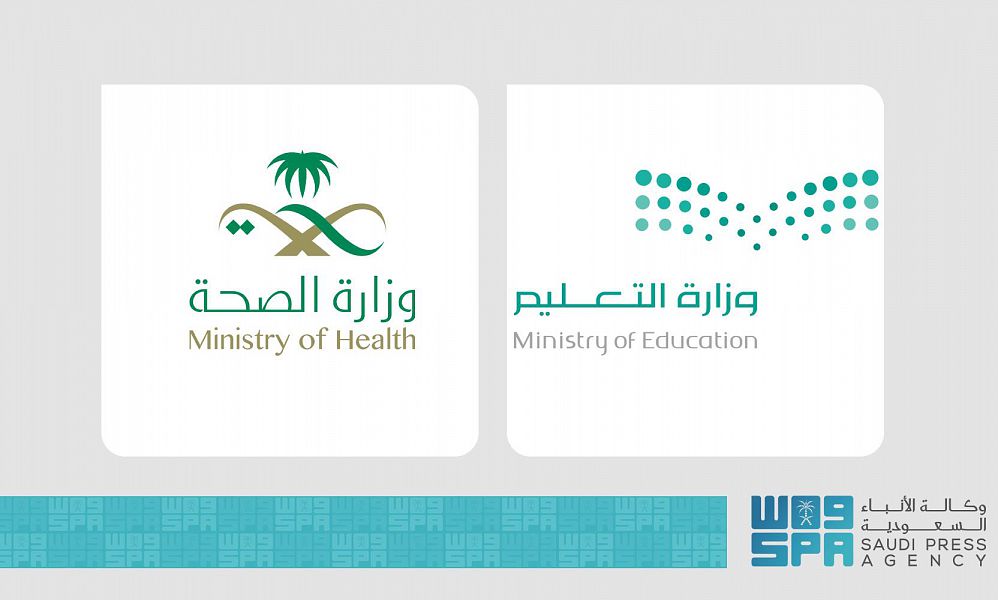
JEDDAH: As teachers and education authorities prepare for the long-awaited return of younger children to school classrooms on Monday, so too are the students and their parents.
The Saudi Ministry of Education announced last week that elementary schools and kindergartens will reopen on Jan. 23, almost two years after they closed as a health precaution to prevent the spread of the coronavirus. The resumption of in-person teaching for the under-12s had been postponed from October last year.
“It’s a decision we must face one day and my children are excited to return to school and it is better for them,” Ala’a Alama, mother of two, told Arab News.
Schools in Saudi Arabia closed classrooms and switched to online learning soon after the pandemic began in early 2020. More than 5 million students across the Kingdom used specially developed distance-learning platforms called Madrasati and Rawdati. Jumana Haj Ahmad, UNICEF’s deputy representative for the Gulf region, said that Saudi authorities had played a world-leading role in the provision of online education.
In preparation for the long-awaited return of students, senior school officials across the Kingdom have implemented a program to prepare pupils, parents and teachers for a safe resumption of classes. HIGH LIGHTS
• In preparation for the long-awaited return of students, senior school officials across the Kingdom have implemented a program to prepare pupils, parents and teachers for a safe resumption of classes.
• It focus on four key areas: Reassuring students and parents about the return to school and face-to-face learning; reminding them of the importance of adhering to safety protocols while in school; providing parents with a platform through which they can ask questions and share concerns; and motivating students to study and participate in activities.
It focus on four key areas: Reassuring students and parents about the return to school and face-to-face learning; reminding them of the importance of adhering to safety protocols while in school; providing parents with a platform through which they can ask questions and share concerns; and motivating students to study and participate in activities.
For the first few weeks after schools reopen the program will in particular focus on psychological efforts to help students get back into the school routine. As part of the program, schools will offer art activities, children’s theater, cultural and entertainment workshops, take photos and shoot videos as students return, and distribute gifts.
Alama said that psychological preparation and support is important for the children as it will help them to resume their studies and interactions with their peers.
Schools will also provide 22 cultural, sports and awareness activities to give students plenty of opportunities to get physically active again after a hiatus of almost two years.
Meanwhile, the online education facilities will remain available for children with serious health conditions that prevent them from returning to the classroom.
Educators in charge of kindergartens and elementary schools across the Kingdom will follow safety guidelines from the Saudi Public Health Authority: Morning assemblies will remain suspended; sports activities must be conducted in spacious, well-ventilated locations; organized entry and departure from school will be organized; and social-distancing measures must be followed in classrooms.
Alama said her children, who are 7 and 10 years old, are aware of all the precautionary measures they need to follow.
“During the pandemic, they learned the importance of washing their hands, maintaining social distancing, and using masks, sanitizers and disinfecting wipes, which are all kept in a kit prepared for them to take to school,” she said.
UNICEF’s Ahmad this week praised the decision by Saudi authorities to resume in-person teaching for children under the age of 12. Older children have already returned to classrooms.
Ahmad said it is an important step and added that during a pandemic, schools should be the last places to close and first to reopen.
In addition, Saudi Arabia’s provision of online education through its two platforms and TV and video channels was world-leading. She also praised the Ministry of Education’s efforts to ensure children’s successful psychological and social growth, and programs designed to protect them from abuse.












